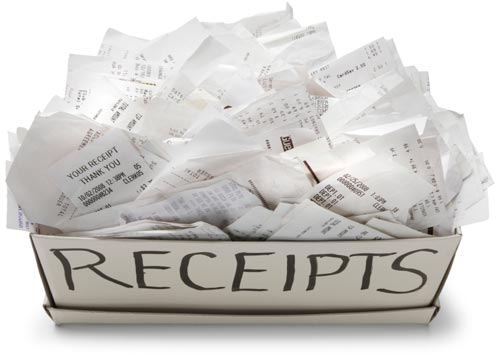Simon decided to pull up his bank account statements for the last three years and go through them. He realised that the bank had debited him twice, a year ago for a cheque of Kes 15,000 that he had written out for school fees. Susan going through the same exercise realised that the lump sum payment of Kes 500,000 that she made to reduce her mortgage had not been credited. Therefore she was still paying interest on a large amount when she should have been charged interest on a reduced amount. Janet realised that a bonus payment of Kes 200,000 from her insurance policy that was supposed to be paid six months ago, had not been paid. She could have invested that bonus and earned some additional money in returns.
The above names are fictional but these are just some of the actual results from an exercise we are currently running in our courses, where we emphasis the importance of keeping and monitoring financial documents in a structured manner. They have now all been able to claim the funds but they have already lost time. You may be looking at this and thinking the respective financial institutions are at fault. However this is your money and no one will ever look after your own money as well as you can. If you cannot mange Kes 100 do not expect to make Kes 1 million as you will bring the same indiscipline to it. The banks may provide us with statements but it is up to us to ensure that the records are accurate. Organizing important personal information will make money management easier for you and for others who may be at some point responsible for handling your financial affairs.
Start by gathering all the information you have and creating a file. This will have your bank statements, credit card statements, loan accounts, insurance policies, tax returns, investment records, titles etc. This exercise will also help you come to terms with exactly where you are in your financial life. It clears the fog and helps us move past avoiding reality in the hope that the problems will mysteriously disappear. Create time every month to ensure you go through everything, make sure it is all in order and that there are no mistakes. Can you account for all the money that has left your account? The company you work for can so why shouldn’t you do the same thing with your personal finances. If you run a business, the same principle of record keeping applies. Over time people have lost millions because of not being aware how money was being handled. Record-keeping is also important due to legal and safety factors. Many records and papers can be kept in a home file for ready access, while others should be left with your attorney or placed in a bank safe-deposit box. You may not want an original title deed in a home file incase of theft or fire.
Remember poor record keeping adds up to lost money in some form of the other. The time you spend looking for these records when you need them is also an opportunity cost in itself. Good personal record keeping is an indicator that you take yourself seriously and you are focused on what you want to achieve. My challenge for this week to you is to create this file and see what you will discover. Remember awareness is the greatest agent for change!
www.centonomy.com | Twitter @centonomy.

